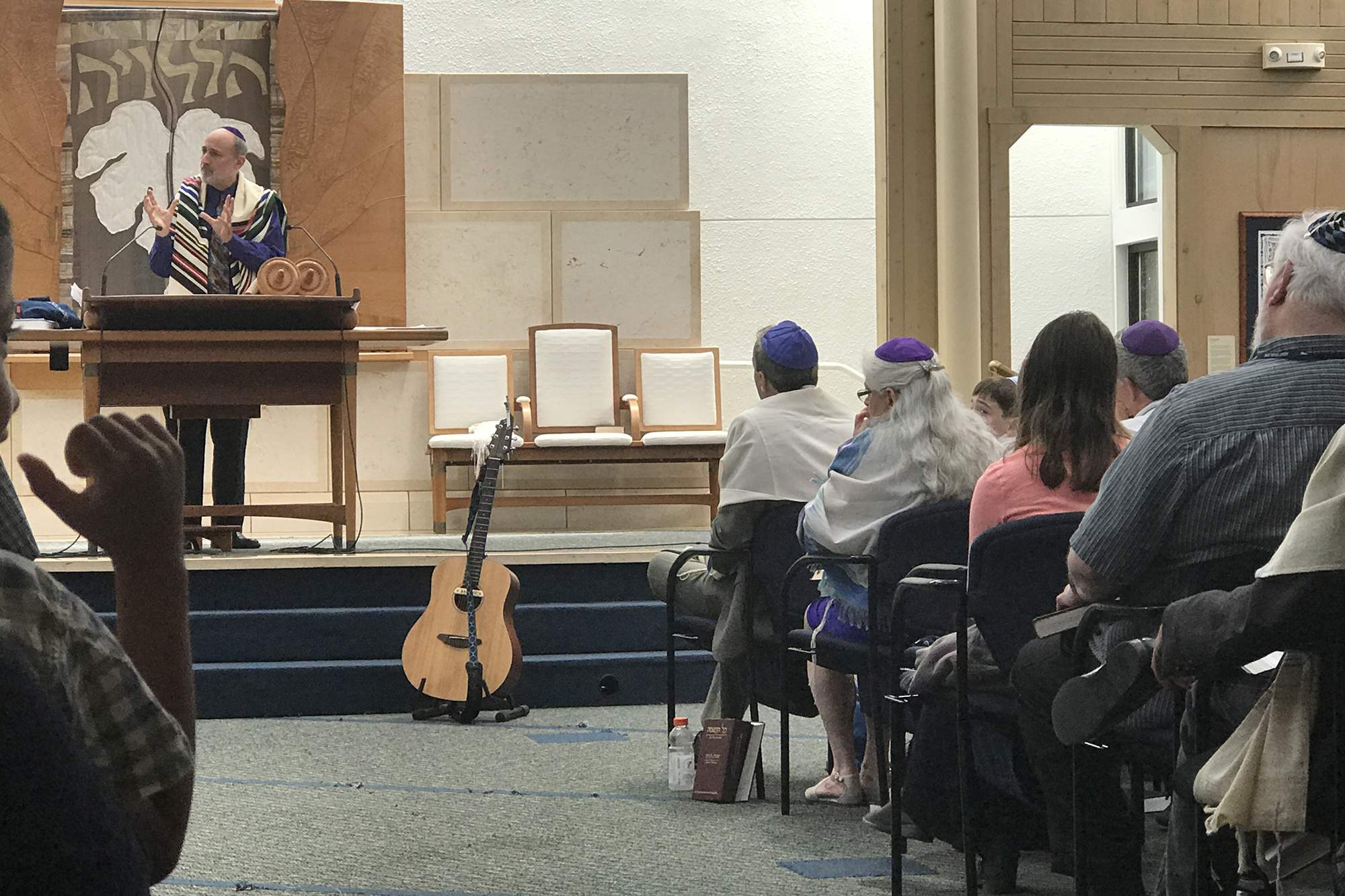

Happy Heshvan! Today is Rosh Hodesh, the New Moon mini-festival; we’ve now entered the
only holiday-less month of our year.
Traditionally it’s called Marcheshvan, adding the prefix meaning “bitter” (as in Maror), since
every other moon-cycle hosts some kind of special day, yet this one got left out. This month gets
defined by what it lacks – which is the first of many reasons why we’ve dropped the “bitter” modifier. In
personifying this 29-day stretch of autumn, tradition ascribes envy to it, which is not the kind of emotion
we want to emphasize. We should celebrate and mark time for what it is, not what it isn’t!
More broadly, this begs the question of hierarchy between ordinary and special times. Each
day contains 24 hours of possibility, whether designated as “khol” (ordinary time), “kodesh” (holy as in
shabbat), or “chag” (festival). Havdalah at the end of every Shabbat forces a qualitative distinction,
associating ‘holy’ with light, and ‘regular’ with darkness. Older translations, as reflected in Mircea
Eliade’s famous book of the same name, call these poles of kodesh and khol “Sacred and Profane.” But
what’s profane, or even just “un-special”, about a day of possibility, or a whole month of such days?!
(Two related asides: first, the traditional text also links our people with light and holiness, while
placing “the [other] nations” alongside darkness and the non-holy. To my mind this is the single most
offensive of the traditional liturgies that Reconstructionist Judaism has proudly changed – which is why
we omit that problematic phrase, “bein Yisrael l’amim,” which still appears in most other liberal
denominations’ Havdalah texts).
(And second: I was literally drafting this paragraph at the Convention Center, with over two
dozen other Adat Shalomers at the J Street conference, when Arab Joint List Chairman Odeh, spoke to
great effect; he, a Muslim who heads the newly critical #3 party in the Knesset, quoted Psalms, in
Hebrew: Ehven ma’asu habonim, hayta l’rosh pinah; “the stone refused by the builders will yet be the
head/corner-stone.” The very next line is Zeh hayom asah YHVH; nagila v’nismacha bo! – “this day, God
has made; let us rejoice and be glad in it!” Though we sing that line only in Hallel on “special” days, it
applies just as well to any random weekday, or to any day in Heshvan).
Perhaps tradition did get the message – though mar as a modifier usually does connote
bitterness, the word “mar” is also a sign of respect – it’s how one addresses, formally, an honored
(male) person, as in “mister,” which really comes from and still connotes “master.” We show extra
kavod/honor/respect to precisely that one month which restores balance: Tishrei has, if anything, too
many holidays! (Beyond the usual 4 holy Shabbatot, it had FIVE added holy days – seven, for our more
traditional diaspora friends). The two-month running average gets closer to ideal, thanks to Heshvan’s
ordinariness.
Balance, ultimately, is precisely the point. We treasure our holy/special/holiday times; let’s
also, maybe even equally, treasure our day-in-and-day-out reality. Let’s take no moment for granted;
let’s devalue nothing and no one. Work, done well and meaningfully, is sacred too. “Ordinary,” when
approached with a sense of opportunity, need not be the antithesis of “holy.”
Welcome to the real start of the year. Tishrei just ended; this is the first week five-day week in
five weeks! Only now are we into the swing of things, hitting our stride, finding our groove, getting our
game on (kind of like the Nats?!?!). One month into 5780, and perhaps every Rosh Hodesh, is a good
time to take stock – revisit our “new years’ resolutions” (whether from Rosh Hashanah, or Jan. 1); look
back on the month that was with a stance of openness and honesty; look ahead to the month that will
be with possibility, hope, and anticipation. Blessings for a meaningfully ordinary month, to all!
Copyright © 2025 Adat Shalom Reconstructionist Congregation. All rights reserved.